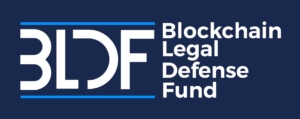Tornado Cash Sanctions Lifted: A Win for Decentralization or a Regulatory Gap?
The United States Treasury Department has officially removed Tornado Cash from its sanctions list following a landmark federal court ruling that found its decentralized code could not be outlawed as property. This decision is a seismic shift in how regulators and courts interpret the legal responsibilities and liabilities surrounding decentralized technologies.
Tornado Cash is a privacy-focused crypto mixer designed to obscure the origins and destinations of cryptocurrency transactions. It operates using self-executing smart contracts deployed on the Ethereum blockchain. The platform rose to notoriety for its use by malicious actors, including those allegedly connected to North Korea, but it also had legitimate privacy use cases for law-abiding users seeking anonymity.
In August 2022, the Office of Foreign Assets Control (OFAC) sanctioned Tornado Cash, citing its role in laundering over $1 billion in illicit proceeds. The move sparked outrage across the crypto community, with developers, privacy advocates, and legal scholars arguing that punishing open-source code violated the First Amendment and threatened innovation.
At the heart of the legal debate was a fundamental question: can decentralized software protocols, which have no central operator, be sanctioned like individuals or entities? The court’s answer was clear—no. In its ruling, the federal appeals court found that because Tornado Cash is an autonomous set of code that no one controls or profits from, it could not be treated as property or as a “foreign person” under OFAC standards.
The Treasury’s subsequent decision to remove Tornado Cash from the sanctions list is not just a policy shift—it is a legal acknowledgment that traditional regulatory tools must be recalibrated for decentralized systems. This is one of the first clear-cut legal victories for the crypto industry in the realm of sanctions law, and it has massive implications.
For developers and open-source contributors, the ruling offers a sigh of relief. It suggests that merely writing or publishing code—especially for non-commercial, decentralized applications—does not automatically make one a target of federal enforcement. That’s an important affirmation of digital rights in a time when financial technology is evolving faster than legal frameworks.
But the case also raises critical questions for policymakers. If Tornado Cash can’t be sanctioned in its decentralized form, what tools does the government have to combat the use of similar tools by sanctioned actors or terrorists? Regulators are now being forced to consider more nuanced strategies—ones that don’t infringe on civil liberties or stifle technological progress but still address genuine threats to financial integrity.
The debate over crypto privacy is far from over. While the Tornado Cash ruling limits the government’s ability to sanction software, it doesn’t absolve individuals who use such tools for illegal purposes. Developers may still face legal risks if they profit from or control such applications. And centralized platforms that interface with these protocols remain subject to existing financial laws.
Moreover, this ruling could have a ripple effect across the globe. Other governments have been watching the U.S. approach to decentralized finance closely, often mimicking its actions. Now, jurisdictions like the EU, UK, and Japan may reconsider their regulatory stances in light of the court’s reasoning.
From a legal strategy perspective, the Tornado Cash case exemplifies how strong constitutional arguments can be used to defend against overbroad enforcement actions. The First Amendment protections for code, the due process concerns in sanctions designation, and the property status of autonomous software are now central to future cases in this space.
For OFAC and the Treasury Department, this ruling marks a moment to re-strategize. The focus may shift from blanket designations to more targeted, transaction-based enforcement, especially when users convert crypto into fiat currency or interact with centralized entities.
In the end, the Tornado Cash sanctions reversal is more than a technicality—it’s a foundational shift in how the law perceives code, decentralization, and financial privacy. It reaffirms that in a digital-first world, legal frameworks must evolve, not just to keep up with technology, but to ensure that civil liberties and innovation are not sacrificed in the name of enforcement.






Leave a Reply
Want to join the discussion?Feel free to contribute!